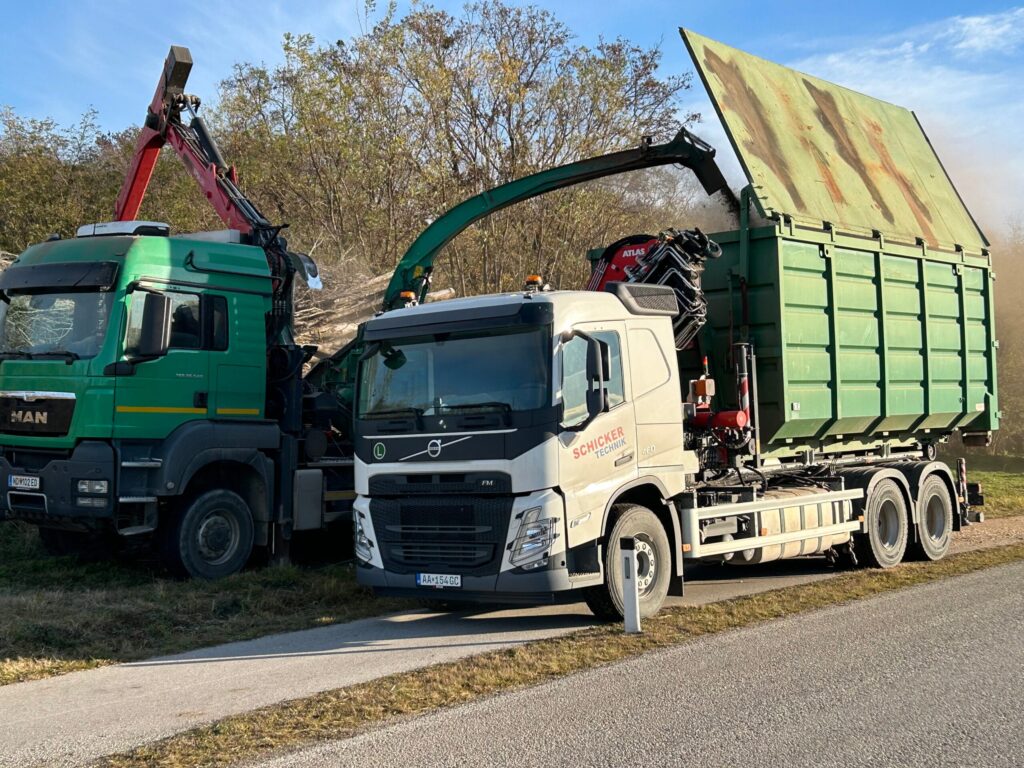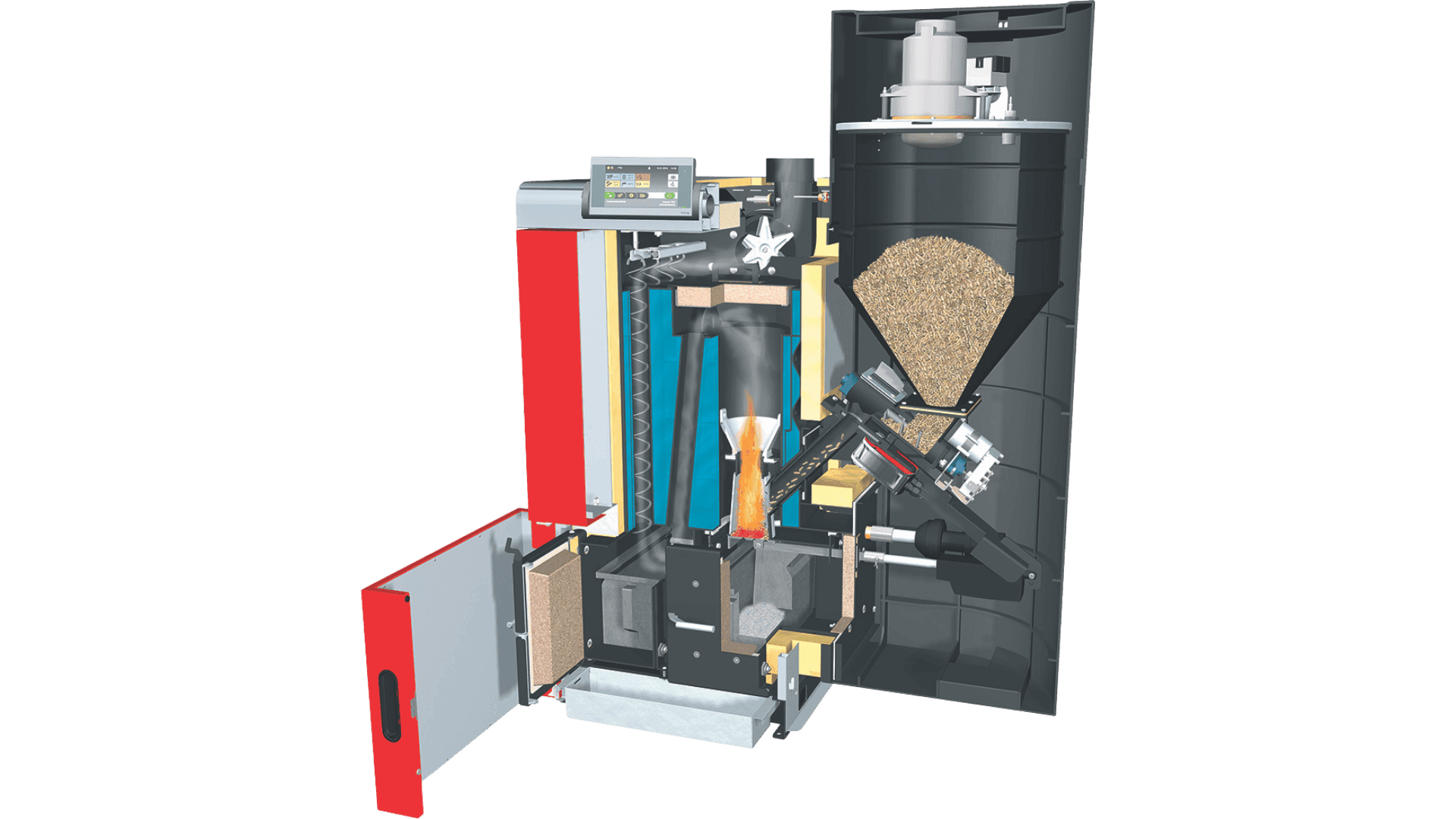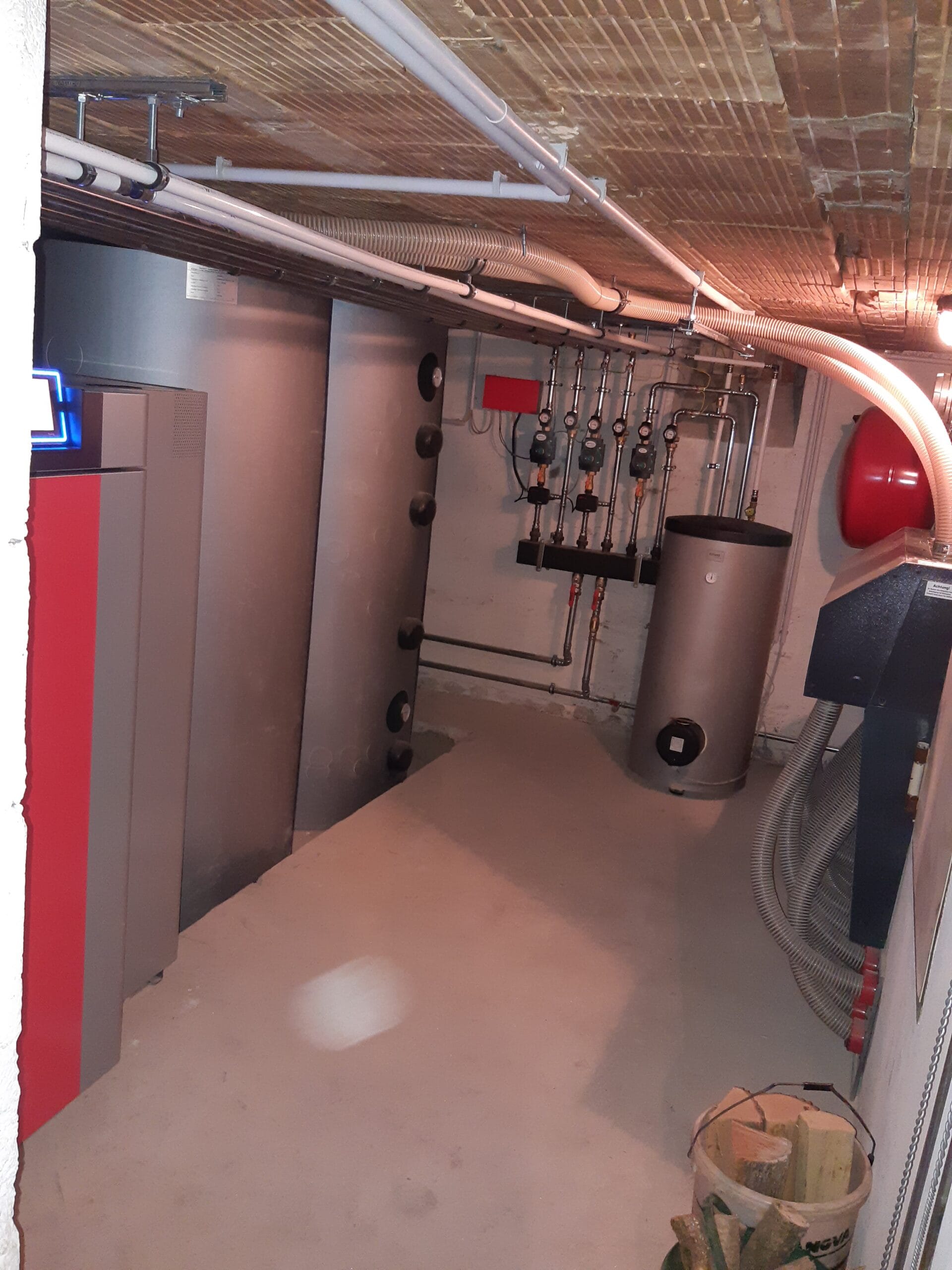Biomass heating - sustainable heating with the power of nature
Biomass heating is an environmentally friendly and efficient solution for your home. At Schicker GmbH in Marchegg, we offer you customized solutions that are perfectly tailored to your needs.

4 steps to your biomass heating system
You can rely on our proven process. We support you from the initial consultation to the finished installation - professionally, transparently and efficiently.
2
Individual planning
3
Professional installation
4
Service & aftercare
1
Wood chips & biomass

Everything from a single source: from installation to fuel delivery
At Schicker GmbH, we think one step ahead. In addition to the installation of your biomass heating system, we offer you:
- Provision of wood chips/biomass
- Maintenance for optimum heating performance
Overview of the pellet storage rooms and their space requirements
A well-planned pellet storage room is crucial for the efficient operation of your biomass heating system.
Basic requirements:
- Dry, dust-tight room
- Adequate ventilation
- Fireproof construction
- Easily accessible for delivery
Space requirement guidelines:
- Single-family house (approx. 150m²): 5-7m³ storage volume
- Apartment building (approx. 300m²): 8-12m³ storage volume
- Rule of thumb: 0.9m³ storage space per kW heat load

Frequently asked questions
We will be happy to answer all your questions in a friendly phone call or by e-mail.
Contact us nowHow long does it take to install a biomass heating system?
The installation time depends on various factors, such as the required heating output and the current condition of pipes and radiators. In an average detached house, we need around 5-7 working days for a complete installation. We will be happy to provide you with a detailed schedule for your individual project.
What is biomass heating?
Biomass heating is an environmentally friendly heating system that uses natural, renewable raw materials as fuel. This heating technology mainly uses biomass such as wood, pellets, wood chips or agricultural residues to generate heat. It works by burning the biomass to produce steam, which then heats a heating system or a heat storage tank.
How high are the operating costs compared to conventional heating systems using fossil fuels?
The operating costs of biomass heating are generally lower compared to conventional heating systems using fossil fuels such as oil or gas. This is because biomass as a fuel is often cheaper than fossil fuels. In addition, biomass heating systems can be operated more cost-effectively by using regional resources such as wood waste or agricultural residues, as there are no high transportation costs.
Are there any state subsidies or grants for installing a biomass heating system?
The subsidy situation for all heating systems is currently complicated. Please call us to find out more about the current situation regarding state and federal subsidies.